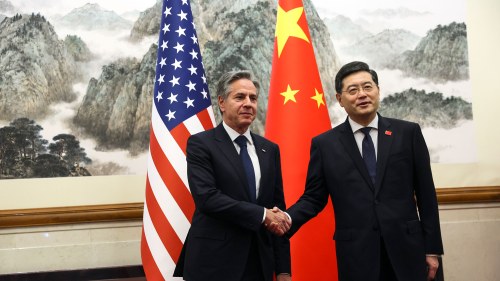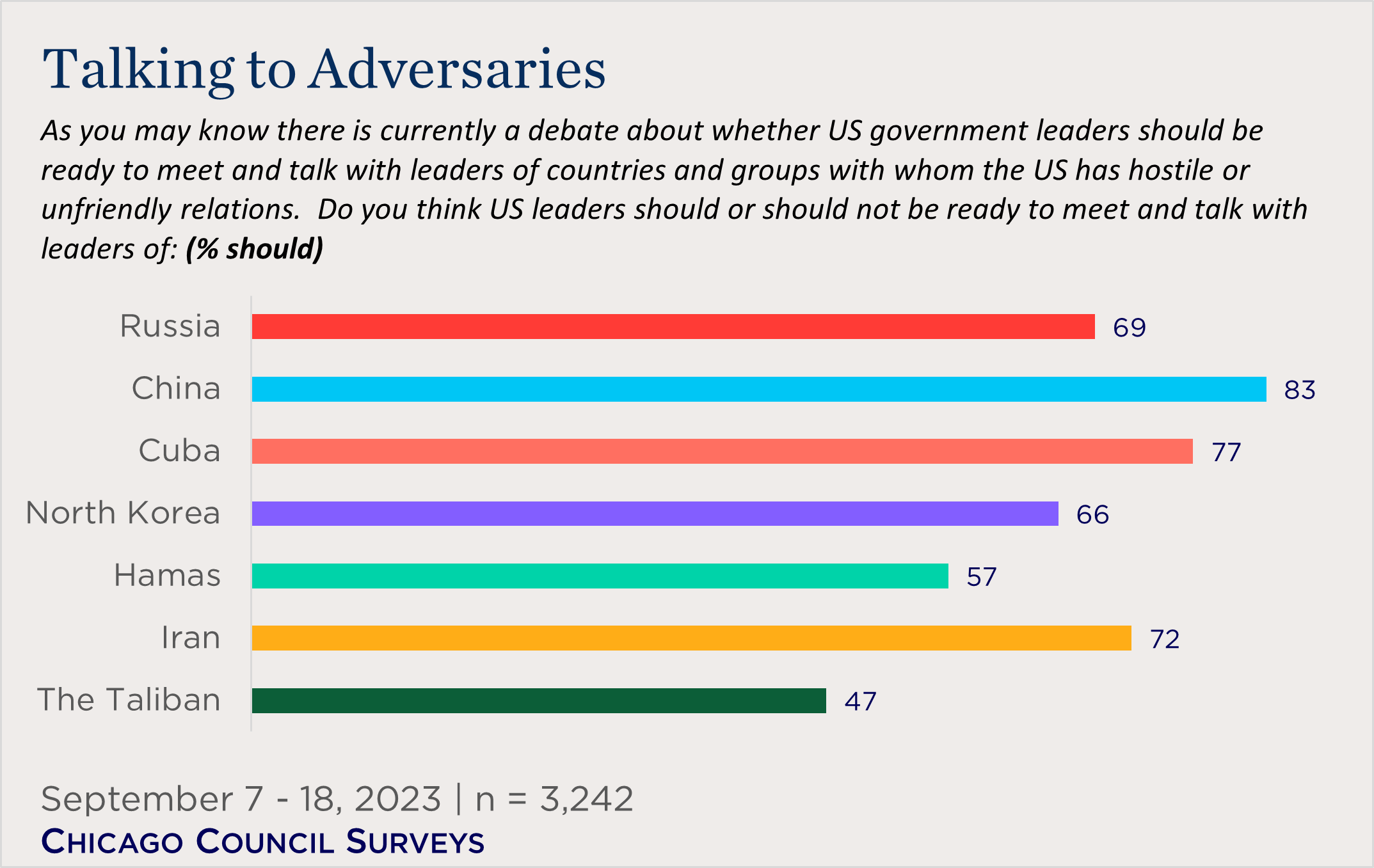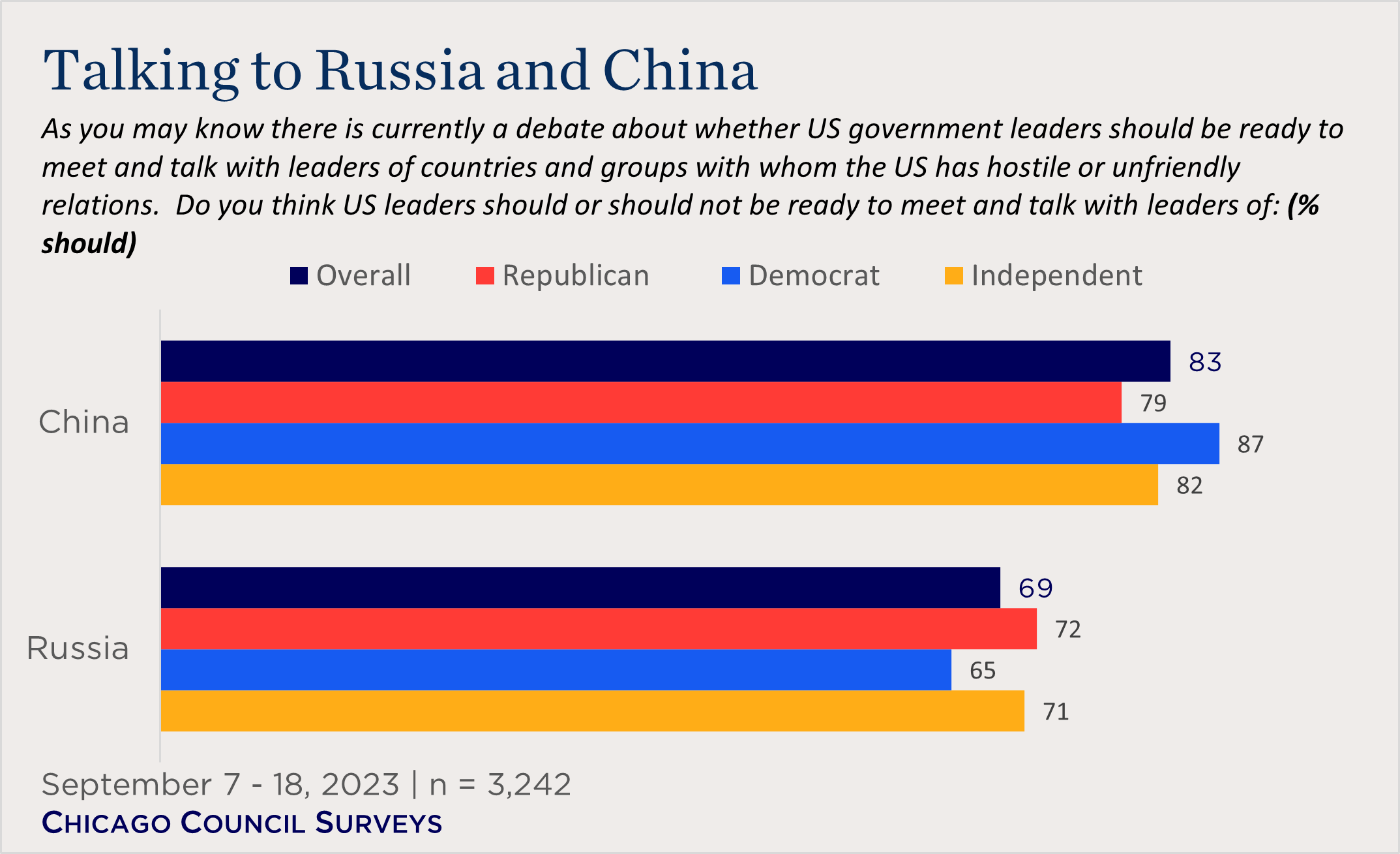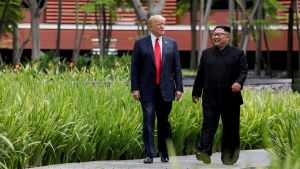Americans Favor US Leaders Opening Talks with Most US Adversaries

The US public supports meeting with the leaders of Russia, China, North Korea, Cuba, and more.
Meeting with foreign leaders is a key tool in any administration’s tool box. These leader-level meetings are often the culmination of extensive efforts by working-level US officials and more frequently take place with US allies and partners than with counterparts of US adversaries. But the 2023 Chicago Council Survey—conducted September 7-18, 2023—finds that the American public is broadly supportive of US leaders meeting with the leaders of countries and groups with whom the United States has hostile or unfriendly relations.
The convention of carefully orchestrated diplomacy was most obviously upended when then-President Donald Trump met with North Korea’s Kim Jong Un in Singapore in 2018. Accordingly, the summit had its share of critics. But the American public has long supported US leaders meeting with North Korea’s leadership. In 2023, 66 say US leaders should meet and talk with leaders of North Korea. This included majorities of Democrats (65%), Republicans (68%), and Independents (67%). Moreover, this is largely unchanged since the question was first asked in 2010 when 63 percent agreed.
Cuba is another country widely viewed as unfriendly to the United States, yet 77 percent of the American public support meeting Cuban leaders.

Perhaps the two biggest geopolitical rivals of the United States are China and Russia. While US public opinion is widely negative toward both of these governments, Americans nevertheless strongly support US leaders meeting with leaders of both countries; 83 percent and 69 percent, respectively. That support is bipartisan in both cases, with 79 percent of Republicans and 87 percent of Democrats favoring meeting with China and 72 percent of Republicans and 65 percent of Democrats in favor of meeting Russian leaders.

It is also critical to note that this survey was conducted before the October 7 Hamas attacks on Israel. At the time the survey was conducted, 57 percent favored US leaders meeting Hamas and 72 percent said US leaders should meet leaders of Iran. However, given interceding events, it is highly likely that these numbers have shifted dramatically.
This analysis is based on data from the 2023 Chicago Council Survey of the American public on foreign policy, a project of the Lester Crown Center on US Foreign Policy. The 2023 Chicago Council Survey was conducted September 7-18, 2023 by Ipsos using its large-scale nationwide online research panel, KnowledgePanel, in both English and Spanish among a weighted national sample of 3,242 adults aged 18 or older living in all 50 US states and the District of Columbia. The margin of sampling error for the full sample is ±2.0 percentage points. The margin of error is higher for partisan subgroups or for partial-sample items.
Partisan identification is based on how respondents answered a standard partisan self-identification question: “Generally speaking, do you think of yourself as a Republican, a Democrat, an Independent, or what?”
The 2023 Chicago Council Survey is made possible by the generous support of the Crown family, the Korea Foundation, and the United States-Japan Foundation.


Related Content
 Public Opinion
Public Opinion
Poll finds a majority of Americans value the US security partnership with Israel but say the status quo between Israel and Palestinians is unacceptable.
 US Foreign Policy
US Foreign Policy
But public opinion has likely shifted following Hamas' attacks on Israel.
 US Foreign Policy
US Foreign Policy
From diplomacy to military intervention, Senior Fellow Elizabeth Shackelford unpacks the ways Washington can pursue its foreign policy interests.
 Public Opinion
Public Opinion
Two recent surveys found that both the American and South Korean publics see an improvement in the security situation on the Korean peninsula.